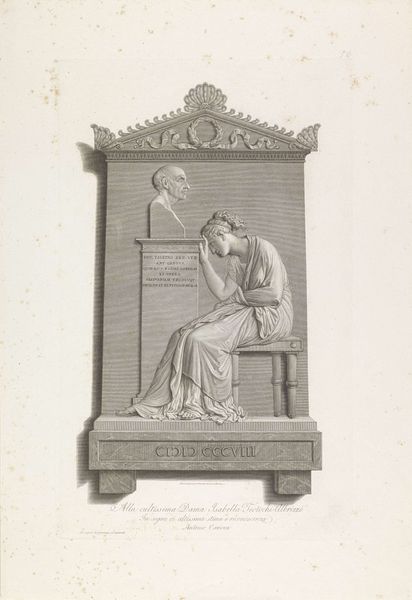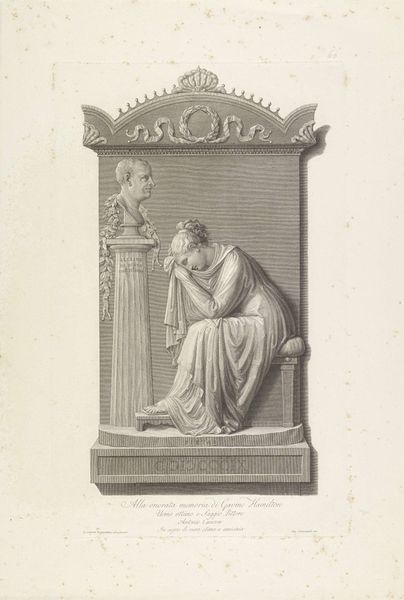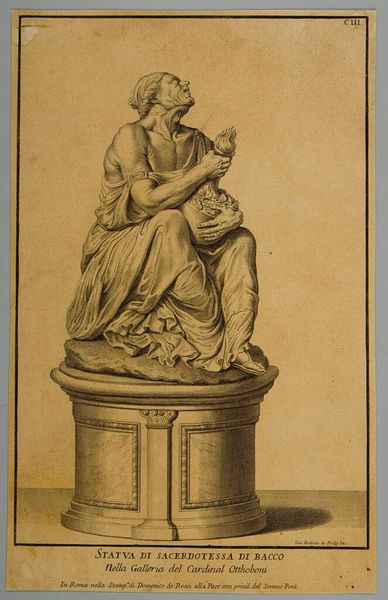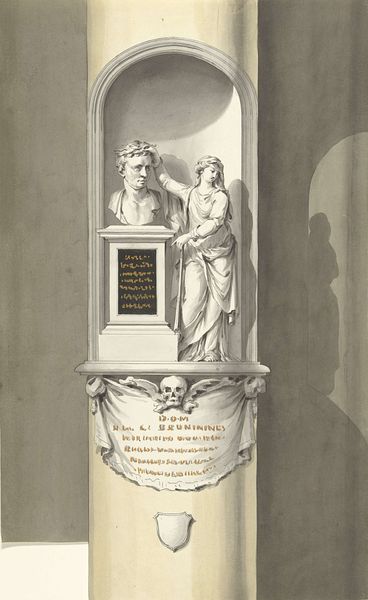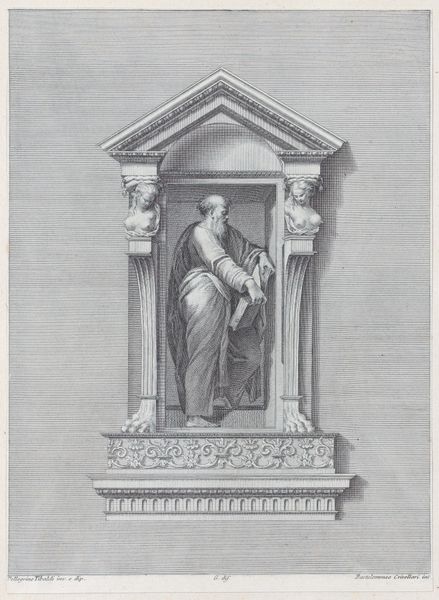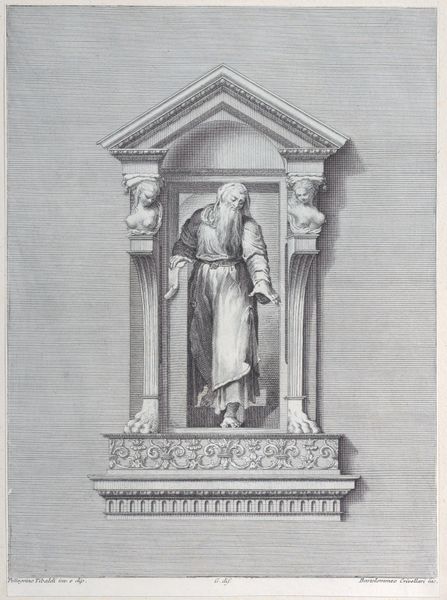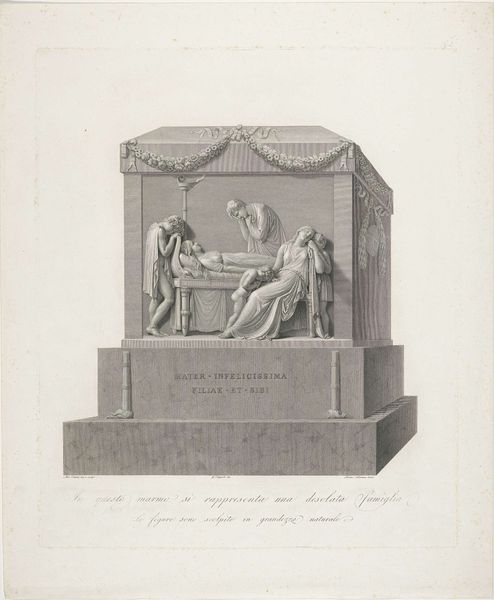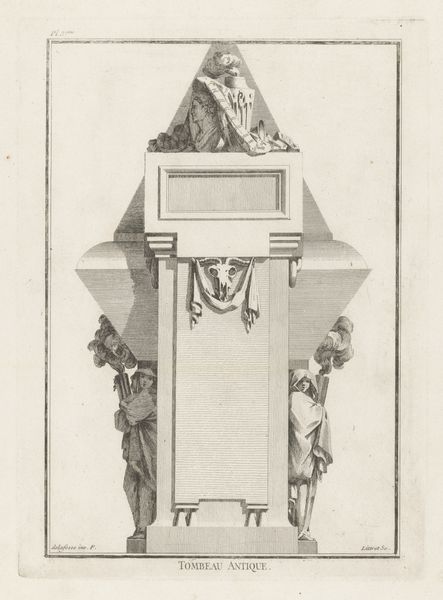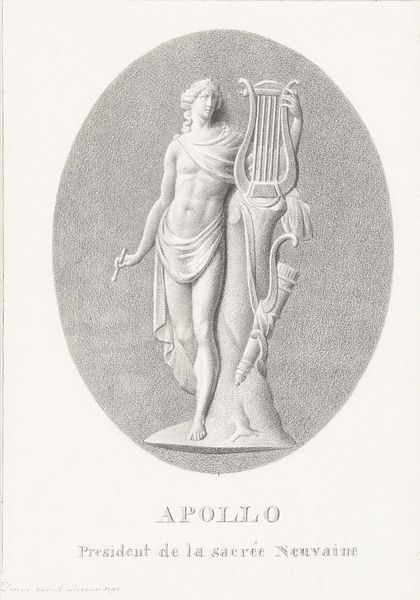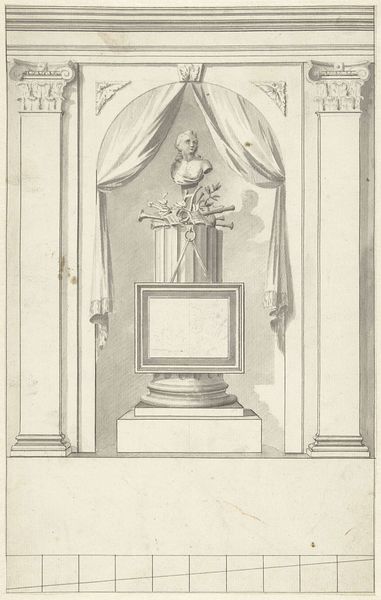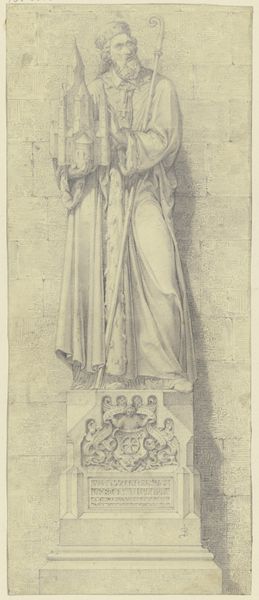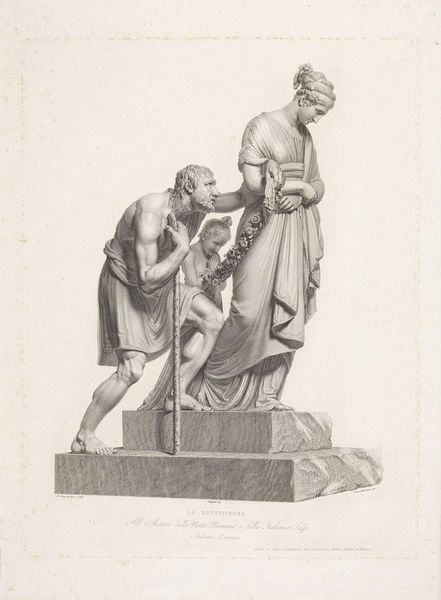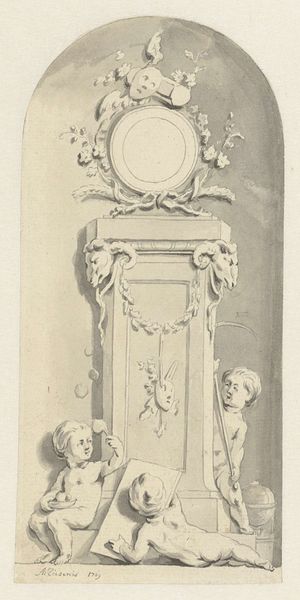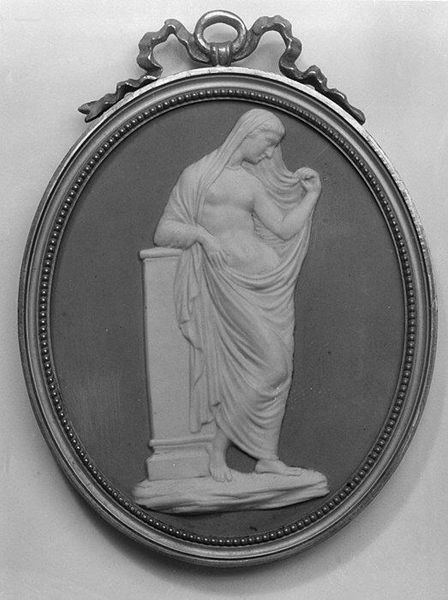
drawing, print, engraving
#
portrait
#
drawing
#
neoclacissism
# print
#
classical-realism
#
figuration
#
form
#
line
#
history-painting
#
engraving
Dimensions: height 439 mm, width 269 mm
Copyright: Rijks Museum: Open Domain
Pietro Fontana created this engraving of a tomb stele for Giovanni Volpato. In this print, we see the visual language of neoclassical art being used to mourn the dead. Consider the cultural context: this was Italy, sometime between 1762 and 1837. The neoclassical style, with its references to the art of ancient Greece and Rome, had become the preferred visual language of European institutions—from museums and galleries to schools and political movements. It was seen as a universal and timeless style that could be used to express the highest ideals of civilization. The figure on the left is in mourning, while the bust on the right presents Volpato as a model citizen. As historians, we must consider the institutions that supported Fontana's work and what purpose they had in mind. Further research into the history of the art world in Italy at this time could help us to understand the social conditions that made this kind of artwork possible.
Comments
No comments
Be the first to comment and join the conversation on the ultimate creative platform.
